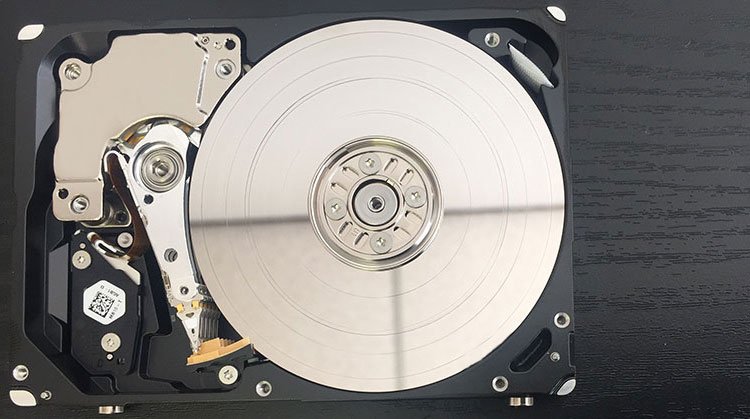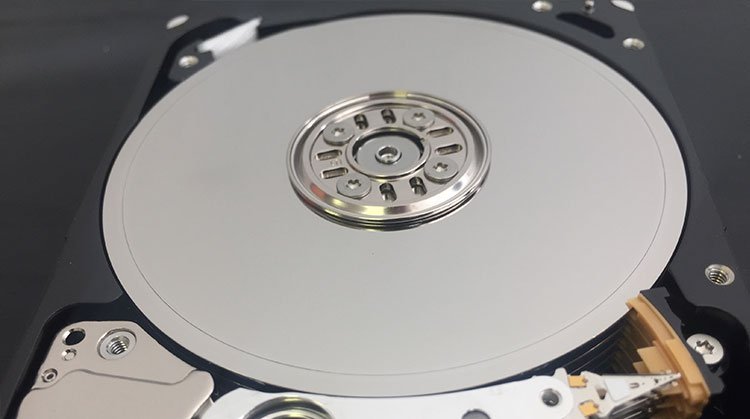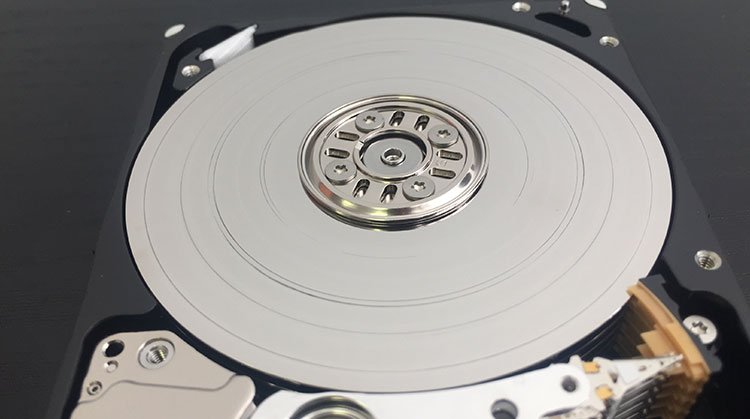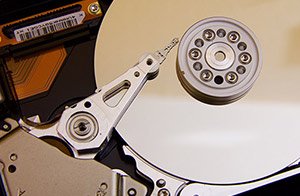
There has been a lot said about scratches on hard drive platters and how that affects the likelihood of data recovery. In this article, we will take a closer look at what these scratches are and the problems they can create when trying to recover data.
The first point to be made here is that scratched hard drives are still recoverable. Not fully, but still recoverable. Typically, the sectors that have been impaired by the scratch and the only sectors that the head stack assembly will not be able to read. This means that the balance of the allocated space is still intact and can be salvaged.
Let’s assume that you are trying to just save one file. Say that file is a 30 MB database from QuickBooks. The good news is that this file has very likely not been impaired by the scratch and can be saved. What we are trying to say here is that the size of the file is going to be a huge determining factor on the possibility of recovery. Smaller files – like your 30 MB QuickBooks database – are still alive and can be salvaged. That is providing the scratch on the disk did not impair it in any way.
Partial Data Recovery
The larger files are going to be where the most challenge in recovery exists. The reality is related to how that larger file is stored on the disk. You should know that the file system will have fragmented the larger files into small pieces of data that are stored in various places on the platters. While the files on one platter will be fine, those files stored on the scratched disk may not be. So, the scenario here is that one good file fragment combined with one bad file fragment will result in a corrupt stream of data.
Users don’t typically defragment their disks and oddly enough, if you defrag your hard drive from time to time, you actually increase the chances of a successful recovery from drives that have been scratched.

Scratched hard drive High chance of recovery

Scratched hard drive Low chance of recovery
Another issue related to disk scratches comes from the actual characteristics of the scratch. If it happens to be too deep or too wide it will leave behind a lot of debris on top of the untouched by scratches surface of the disk. We are making reference to the thin outer layer of aluminum coating that is on the top of the platters. In other words, the layer that actually holds your data. The debris is typically an extremely fine powder that will scatter all over the platter surface in an uncontrolled and chaotic manner. This occurs simply because of the speed at which the platter spins. Even with debris covering the disk surface, recovery is possible.
The platters need to be properly cleaned first. This requires the proper tools and techniques in a lab environment. The downside to this is that the cleaning process can take days, weeks and possibly months to complete. Persistence and patience in these situations are essential at this stage in the game in order to increase the probability of success. Even if it appears to be a lost cause, disks that have been properly cleaned we have experienced data recovery in the 60% range.
Now that you know the complete truth about scratched disks and the apparent fact that a scratch renders recovery impossible, you will be better prepared if faced with such a situation. If you find yourself dealing with a company or firm that tells you they cannot assist with data recovery from scratched disks because it can’t be done, it really means something else. What they are telling you is that they are not prepared to invest the time required to properly clean your disk and attempt recovery. Like we stated above, it can take months.
Time, however, is not the only factor. Dedication, access to a 24/7 clean room environment and donor part investments play a huge role as well. So, you really should not be too surprised if you receive a very expensive quote from a company that states they are actually able to take on your data recovery attempt.
One final tip… Be sure to always have a current backup of your files. This at least gives you something to work with if your data is lost.
Finally, if you have scratched platters and your local data recovery source has turned you down saying they can’t help you…or you are seeking a second opinion, contact us. Regardless of the circumstances, about 80% of the time we are able to recover at least some of the data from scratched platters.

